
Though, water covers around two-thirds of the earth's surface but water is still a scarce resource as only 1% of world's water is available as drinking water. With due availability of land and air all around, civilizations before have always moved/expanded in search of required drinking water.
Drinking water based on water cycle of earth (ocean-heat evaporation-cloud-rain-ocean) and then available from natural resources on earth is dwindling with time due to many reasons along with increasing population. People have already shifted to the use of smart technologies to transport, clean, uplift drinking water from other different sources but all these water resource technologies have their own geographic region specific limitations in general and for hilly and desert regions in particular. Earth's atmosphere holds six times more fresh water than all of its rivers combined, so, if it is possible technologically to harvest that water, in areas where people have no other fresh water source, can prove to be a wonder.
Atmospheric water extracting devices extract potable water from the air, either through condensation, exposing the air to desiccants (water-absorbing substances), or by pressurizing the air. With the development of science and technology, scientists and engineers are proposing different technologies to extract water from thin air (from fog) which will help people in getting enough drinking water at location specific with low cost. There are four main methods for extracting water from the atmosphere:
Fog nets: setting up physical nets in humid environments to collect the water in the air
Dew plates: using temperature differences to encourage water to condense on metal plates
Sorbents: using chemicals to absorb water from the air, and then heating the material to extract the water
Diese Geschichte stammt aus der March-April 2023-Ausgabe von Scientific India.
Starten Sie Ihre 7-tägige kostenlose Testversion von Magzter GOLD, um auf Tausende kuratierte Premium-Storys sowie über 8.000 Zeitschriften und Zeitungen zuzugreifen.
Bereits Abonnent ? Anmelden
Diese Geschichte stammt aus der March-April 2023-Ausgabe von Scientific India.
Starten Sie Ihre 7-tägige kostenlose Testversion von Magzter GOLD, um auf Tausende kuratierte Premium-Storys sowie über 8.000 Zeitschriften und Zeitungen zuzugreifen.
Bereits Abonnent? Anmelden
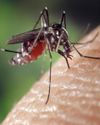
An insight into Chandipura virus in India
Recently lot of news regarding disease due to Chandipura virus has emerged in various newspapers/magazines. After reading the reports published it seems that thing is still brewing in the natures nest and it could affect mankind.

Why elephants never forget?
An elephant has a very large brain for its size and the 'temporal lobe' region responsible for memory is more developed with a greater number of folds - this results in powerful abilities to 'download' important survival data such as where to find food and water, and who is friend or foe.
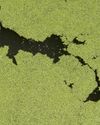
Use of Algae for Wastewater Treatment Containing Heavy Metals
Wastewater treatment is a critical environmental issue particularly when it comes to the removal of heavy metals.
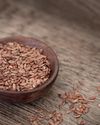
Nano priming Seeds: A Small Innovation Sparkling Big Advances in Germination
Nanopriming is an emerging agricultural technique where the seeds are treated with nanoparticles to improve their germination, growth, and overall performance.
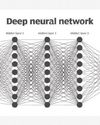
Nobel Laureates in Physics 2024: Revolutionizing AlThe Physics Foundations Behind Machine Learning
This year's two Nobel Laureates in Physics have used tools from physics to develop methods that are the foundation of today's powerful machine learning.
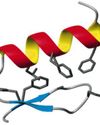
Revolutionizing Biology: The 2024 Nobel Prize in Chemistry Celebrates Breakthroughs in Protein Design and Structure Prediction
The Nobel Prize in Chemistry 2024 is about proteins, life's ingenious chemical tools.
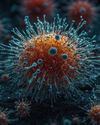
New findings on animal viruses with potential to infect humans
Scientists investigating animal viruses with potential to infect humans have identified a critical protein that could enable spillover of a family of organisms called arteriviruses.

Father-Daughter Team Decodes Mars' Alien Signal
There is no definitive answer to whether aliens exist, but there is a lot of work being done to find out:
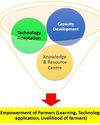
Krishi Vigyan Kendras: Working for Farmer's Welfare
Krishi Vigyan Kendras (Farm Science Centres) are the District level institution serving as an agriculture knowledge resource & capacity development centre which plays indispensable role in front line extension regarding agriculture system in scientific way.

Sixth generation Computer: The future computing technology
We are in a transition towards a digital world, where everything will be dealt with in digital format.